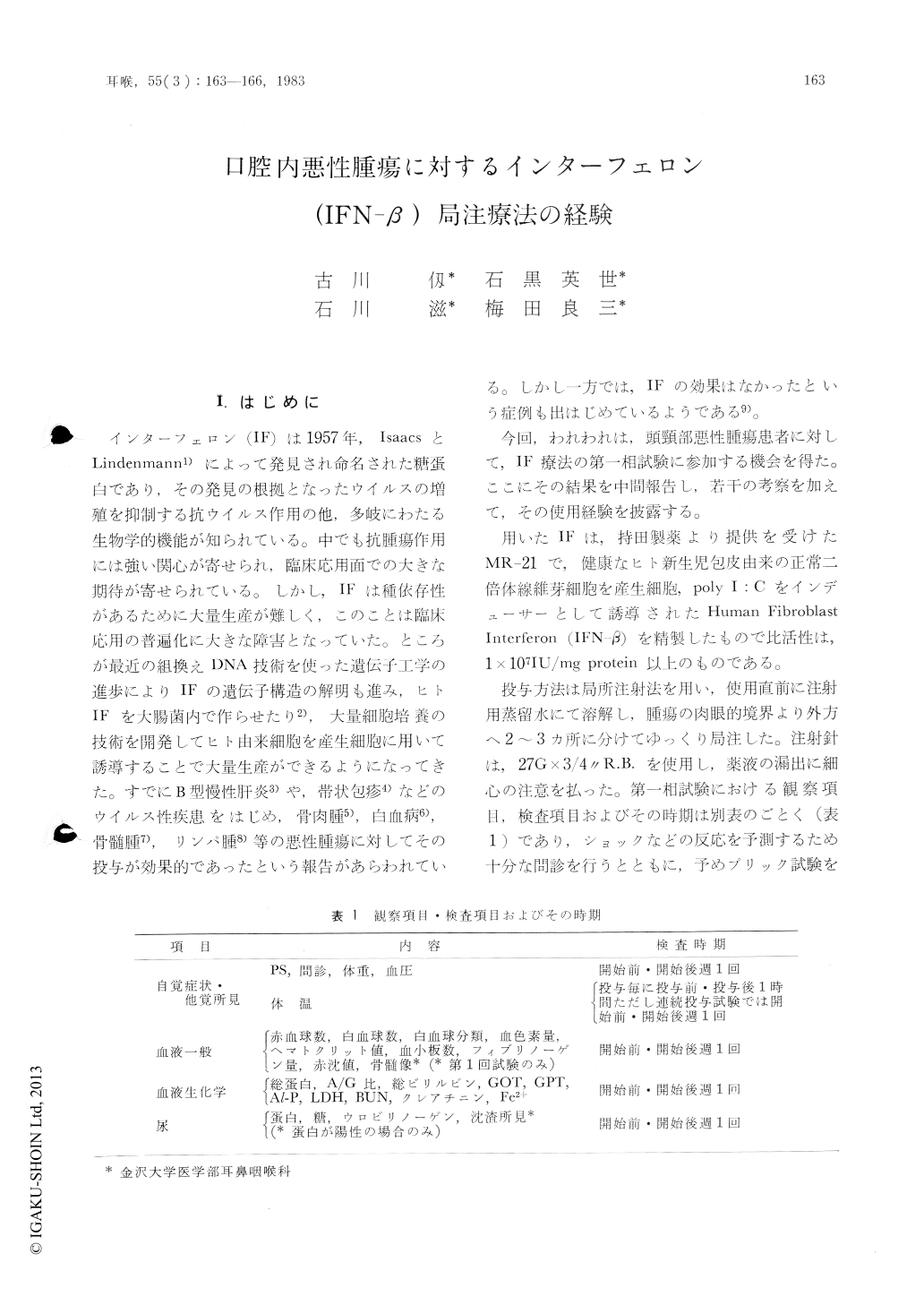Japanese
English
- 有料閲覧
- Abstract 文献概要
- 1ページ目 Look Inside
I.はじめに
インターフェロン(IF)は1957年,IsaacsとLindenmann1)によって発見され命名された糖蛋白であり,その発見の根拠となったウイルスの増殖を抑制する抗ウイルス作用の他,多岐にわたる生物学的機能が知られている。中でも抗腫瘍作用には強い関心が寄せられ,臨床応用面での大きな期待が寄せられている。しかし,IFは種依存性があるために大量生産が難しく,このことは臨床応用の普遍化に大きな障害となっていた。ところが最近の組換えDNA技術を使った遺伝子工学の進歩によりIFの遺伝子構造の解明も進み,ヒトIFを大腸菌内で作らせたり2),大量細胞培養の技術を開発してヒト由来細胞を産生細胞に用いて誘導することで大量生産ができるようになってきた。すでにB型慢性肝炎3)や,帯状包疹4)などのウイルス性疾患、をはじめ,骨肉腫5),白血病6),骨髄腫7),リンパ腫8)等の悪性腫瘍に対してその投与が効果的であったという報告があらわれている。しかし一方では,IFの効果はなかったという症例も出はじめているようである9)。
今回,われわれは,頭頸部悪性腫瘍患者に対して,IF療法の第一相試験に参加する機会を得た。ここにその結果を中問報告し,若干の考察を加えて,その使用経験を披露する。
The interferons are potent antiviral glycoproteins. Among other biological effects they inhibit multiplication of tumor cells in experimental systems. The mechanisms underlying their antitumor properties remain unknown. We describe here the effects of human fibroblast interferon in two patients with malignant tumors of the oral cavity, who had no previous antitumor therapy.
Interferon was injected locally twice a week for about one month. The patient with carcinoma of the tongue showed partial remission but the other patient with cancer of buccal mucosa did not at all. However, the tumor did not enlarge during the therapy. It seemed that the long-term interferon therapy might be necessary for the improvement and/or diminishing the malignant tumors.

Copyright © 1983, Igaku-Shoin Ltd. All rights reserved.


